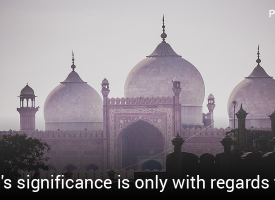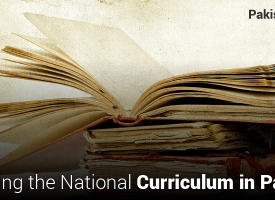Posts From Z Khalid
The following is a concise English translation of an Urdu column by Dr. Safdar Mehmood for Daily Jang dated July 21, 2015. ****** Fundamentally, man is prone to notice things which are obvious; he has a tendency to judge things from their outward or “apparent” looks. This is why I advise my friends time and again that when studying historical figures, they shouldn’t focus on their apparent features; instead, they
Pakistan’s relations with Myanmar (formerly ‘Burma’) go back to 1947 when the Union of Burma and East Pakistan shared borders. Despite the independence of Bangladesh, both countries continue to maintain bilateral relations; since 1988, Pakistan and Burma each have embassies in each other’s capital. As recently as 2012, then President Asif Ali Zardari visited Myanmar to promote trade, economic and energy cooperation between the two Asian countries. Many hailed the
The Merriam Webster dictionary defines Bureaucracy as “a large group of people who are involved in running a government but who are not elected”. Another, more suitable definition, is “a system of government or business that has many complicated rules and ways of doing things”. Politicians are individuals who belong to various political parties who contest elections and struggle for maximum votes to attain a seat in national or provincial
Before I get into the contents of this article in detail, a few things need to be clarified beforehand. This article specifically addresses Muslims in Pakistan who belong to the Sunni and Shia schools of thought. There are several sub-sects in these respective schools of thought; for example, Barelvis, Deobandis, Salafis/Wahhabis etc come under the umbrella of ‘Sunni’ whereas Ithna Ashari (Twelvers), Zaidis, Ismailis, etc come under the umbrella of
Time and again, the Indian establishment creates a stir in the media by pressing Pakistan on the extradition of Zakiur Rehman Lakhvi, Hafiz Saeed and other members of Jamaat-ud-Daawa (JuD) who it believes are responsible for the tragic 26/11 Mumbai attacks. Without an iota of tangible evidence to support its claim, India further alleges that Pakistan’s premier spy agency, Inter-Services Intelligence (ISI) provided finance and logistical support to JuD members.
When the foundation for Pakistan was solidified with the passing of the Lahore Resolution in 1940, the Muslims in the Indian Subcontinent were (righteously) led to believe that Pakistan would be a separate homeland where they could freely exercise Deen (Islam as a way of life). Pakistan was seen as a homeland for all Muslims irrespective of their sectarian denominations/schools of jurisprudence. What was common among them all was the
Qudrat Ullah Shahab, popularly known as ‘Q.U. Shahab’, was one of Pakistan’s most legendary civil servant and Urdu writer. Shahab’s most notable appointments after migration to Pakistan from the Indian Civil Service were Principal Secretary to Governor Generals Ghulam Muhammad, Iskander Mirza and Field Marshal Ayub Khan’s regimes. In 1962, he served as Ambassador of Pakistan to The Netherlands and later as Secretary of Education. During the early days of
According to the latest available statistics, Pakistan’s literacy rate is still at a grim 58%. And yet as a whole, the products of this quoted percentage (educated students) also do not have any notable achievements to bring forth, with the obvious exception of a very few men and women. Like many other countries, Pakistan’s education system comprises of the Primary, Secondary, Higher Secondary, Intermediate, Undergraduate, Postgraduate and Doctorate levels. The







